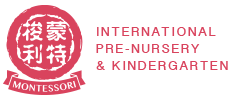The excellence of our programs is reflected in the fact that our graduates advance to top schools. Here are some of the primary schools recent graduates have moved on to:
Frequently Asked Questions: Casa Program
1. How are new students supported in their transition to the school routine and environment?
Children under the age of 6 have the power to engage sensorially and subconsciously. Dr. Montessori referred to this stage as the absorbent stage, that children have the capability to effortlessly absorb language, culture, social skills, work habits, given the suitable learning environment.
In the Montessori classroom, this objective is approached in 2 ways: first, by allowing each child to experience the excitement of learning by her own choice and not by force; second, by helping her to perfect all her natural tools for learning so her potential will be maximized in future learning situations. Dr. Montessori always emphasized that the hand is the chief teacher of the child. All the materials in the Montessori environment allows the child to reinforce his casual impressions by inviting her to use her hands for actual learning.
2. The Purpose of Montessori Materials
In addition to their immediate purpose of giving specific information to the child, the Montessori materials have a long range purpose.
Dr. Montessori always emphasized that the hand is the chief teacher for children from 0 to 6 years old. In order to learn there must be concentration, and the best way a child can concentrate is by fixing his attention on the task he is working with his hands. All the materials in a Montessori classroom allow the child to reinforce his casual impressions by inviting him to use his hands for actual learning.
3. Do children learn better in mixed-age classrooms?
If classroom materials are to be challenging enough to motivate the child, it must be properly matched to the level the child has already reached in his past learning experiences.
In the Montessori classroom, the child is offered the opportunity to choose from a wide range of graded materials. His skills and capability grow as his interests lead him from one level of complexity to another. In a mixed-age class, while a child who is more capable can work with more challenging materials, those who may need more time can repeat the activity until mastery of the skill.
Having children ages three through six together allows the younger children to observe a graded series of models for imitation, and the older ones an opportunity to reinforce their own knowledge by helping the younger ones. A child’s leadership skills are indirectly cultivated this way through mentoring, empowering and mutual respect.
4. Our Bilingual Program
Strong language skills can directly improve a child’s self-confidence and social skills. In the Montessori classroom, emphasis is placed on using precise vocabulary, learning to speak with fluency, and developing excellent communication skills.
We offer an immersive language environment in English and a choice of Cantonese/Putonghua. Daily language exercises are conducted in groups or in one-on-one sessions, reinforcing the child’s conversation, reading and writing skills.
5. How are students assessed?
Grades, like other external rewards, have little lasting effect on a child’s motivation. The Montessori approach kindles and nurtures the child’s natural desire to learn, so the motivation comes from within. Our teachers also closely observe each student’s progress and readiness before advancing to more new lessons.
There are 2 types of assessments: a monthly assessment and a bi-annual report card. The monthly assessment reports areas including work habits, language development and social skills. At the end of each term, a bi-annual report card is sent home, which gives a more detailed view of a student’s progress in the academic areas.
6. What are your teachers’ qualifications and what is the student to teacher ratio?
All of our Montessori teachers are Montessori trained and certified through internationally recognized Montessori associations, including AMI (Association Montessori Internationale) and AMS (American Montessori Society). Our language teachers in English, Putonghua or Cantonese are native speakers and hold relevant language teaching qualifications. In our Pre-Casa classes, the teacher-student ratio is 1:6, and in our Casa classes, 1:8.
7. Notable Montessori Alumni
Montessori education is characterized by an emphasis on independence, freedom within limits, and respect for a child’s natural psychological, physical, and social development. Montessori students are creative, open-minded, outside-the-box thinkers.
Thomas Edison, American inventor and advocate of the Montessori method, has been quoted saying, “I like the Montessori method. It teaches through play. It makes learning a pleasure. It follows the natural instincts of the human being. The present system casts the brain into a mold, and does not encourage original thought or reasoning.”
The knowledge, work habits and skills a child learns in a Montessori classroom will help them to observe more carefully, work more efficiently and focus more effectively. The child will develop a passion and love of self-directed learning, and this inner drive will naturally motivate the child to continue learning about themselves and the environment around them.
6 tech innovators who attended Montessori schools:
-
- Jeff Bezos, founder of Amazon.com
- Larry Page, co-founder of Google.com
- Sergey Brin, co-founder of Google.com
- Jimmy Wales, founder of Wikipedia.com
- Henry Ford, founder of the Ford Motor Company
- Will Wright, creator of “The Sims” videogame
Our Graduates
- Diocesan Girls’ School 拔萃女書院
- Marymount Primary School 瑪利曼小學
- St. Paul’s Co-Educational Primary School 聖保羅男女中學(附屬小學)
- Sacred Heart Canossian School (Private Section) 嘉諾撒聖心學校(私立部)
- Creative Primary School 啟思小學
- Kiangsu and Chekiang Primary School 蘇浙小學
- Rosaryhill School 玫瑰崗學校
- St. Joseph’s Primary School 聖若瑟小學
- St. Louis School (Primary Section) 聖類斯小學
- Canadian International School of Hong Kong 加拿大國際學校
- Chinese International School 漢基國際學校
- Christian Alliance P.C. Lau Memorial International School 宣道會國際學校
- French International School 法國國際學校
- International Christian Academy 基督教國際書院



